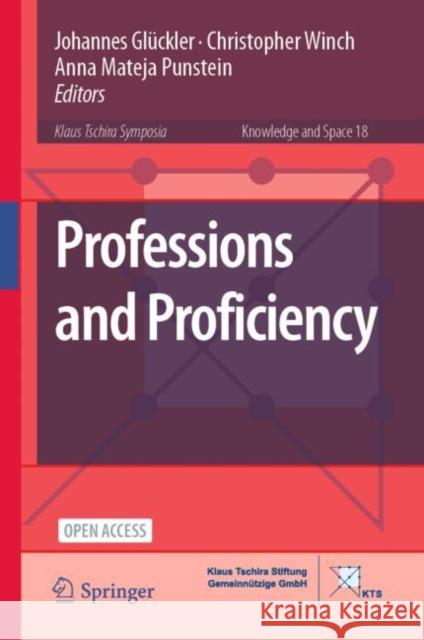Professions and Proficiency » książka
Professions and Proficiency
ISBN-13: 9783031249099 / Angielski
Professions and Proficiency
ISBN-13: 9783031249099 / Angielski
(netto: 191,66 VAT: 5%)
Najniższa cena z 30 dni: 192,74
ok. 16-18 dni roboczych.
Darmowa dostawa!
This open access book takes an original view on the social production of knowledge in and across space. It explores how people build and transfer proficiency within and beyond the bounds of social groups. Social groups, such as professions, epistemic communities, or academic disciplines, collectively organize to help individuals gain understanding of and knowledge about specific subjects of expertise. Yet, at the same time, they frame legitimate ways of thinking and learning, and they sanction other ways of knowing that are collectively seen as false, inelegant, or inappropriate etc. Acknowledging the interdependency between proficiency and professions, the interdisciplinary contributions to this volume focus on three aspects. Part I looks into the social processes of professions and what actually makes qualifications, competence and proficiency. Part II elaborates on the dynamics that transform intangible knowledge by exploring, for instance, the legitimacy of scientists within society. Part III gives insights into how space influences the development of professional work, for instance, by reconstructing the historical formation of the psychology profession in Argentina. This volume provides a valuable read for scholars, students, and professionals in the fields of innovation, knowledge creation and governance.
This open access book takes an original view on the social production of knowledge in and across space. It explores how people build and transfer proficiency within and beyond the bounds of social groups. Social groups, such as professions, epistemic communities, or academic disciplines, collectively organize to help individuals gain understanding of and knowledge about specific subjects of expertise. Yet, at the same time, they frame legitimate ways of thinking and learning, and they sanction other ways of knowing that are collectively seen as false, inelegant, or inappropriate etc. Acknowledging the interdependency between proficiency and professions, the interdisciplinary contributions to this volume focus on three aspects. Part I looks into the social processes of professions and what actually makes qualifications, competence and proficiency. Part II elaborates on the dynamics that transform intangible knowledge by exploring, for instance, the legitimacy of scientists within society. Part III gives insights into how space influences the development of professional work, for instance, by reconstructing the historical formation of the psychology profession in Argentina. This volume provides a valuable read for scholars, students, and professionals in the fields of innovation, knowledge creation and governance.











